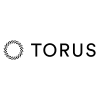Dive Brief:
- As a November solar ballot initiative looms, the board of Jacksonville's public utility, JEA, decided to delay its vote on whether or not to reduce compensation for distributed solar systems until after the upcoming election cycle, the Florida Times-Union reports.
- A number of attendees requested the board postpone the decision to give time to see what happens in the November election and what the Florida Public Utilities Commission could say in the matter. JEA's staff recommended reducing the retail net metering rate, saying it results in a cost-shift burden for non-rooftop solar users.
- The utility-backed constitutional amendment would establish a right for consumers to own or lease solar equipment, while ensuring costs for electricity delivery are not shifted to non-distributed solar owners.
Dive Insight:
The ripple effects of Florida's solar issues are being felt before the November election cycle. JEA rooftop solar customers have pushed the public utility to keep the current retail rate net metering credit. Board members agreed to delay a decision to see how the utility-backed constitutional amendment plays out, but cautioned against too much of a delay.
“I don’t think it is something that should be put too far in the future,” said Ed Burr, one of the board members.
About 520 of JEA’s 447,000 electricity customers are solar owners, and argue reducing the credit would dissuade people from investing in rooftop solar. JEA staff did recommend the Board grandfather existing solar owners at the existing credit, but also included an option to phase in the reduced rate for current solar customers. Though the net metering debate taking place is a familar issue nationwide, what's really at issue in Florida is third-party financing for solar panels.
Two dueling ballot initiatives are trying to resolve whether or not third-party providers have the right to sell electricity directly to consumers without being classified as a utility.
One ballot amendment, backed by Floridians for Solar Choice, would legalize third party ownership (TPO) of distributed solar in Florida and allow customers with systems of 2 MW or less to sell electricity directly to other consumers.While FSC language was approved last year for this upcoming election a payment dispute with a consulting firm hired to secure signed petitions led to FSC failing to get the required number of signatures.
The utility-backed amendment was formed in response to FSC's initiative. The state's four major electric utilities, Duke Energy Florida, Florida Power & Light, Gulf Power, and Tampa Electric, have all together donated nearly $4 million to CSS, according to Politico.












